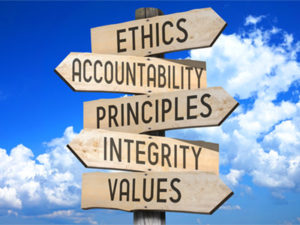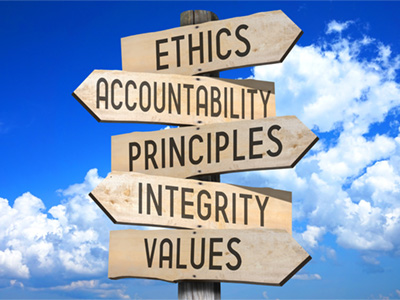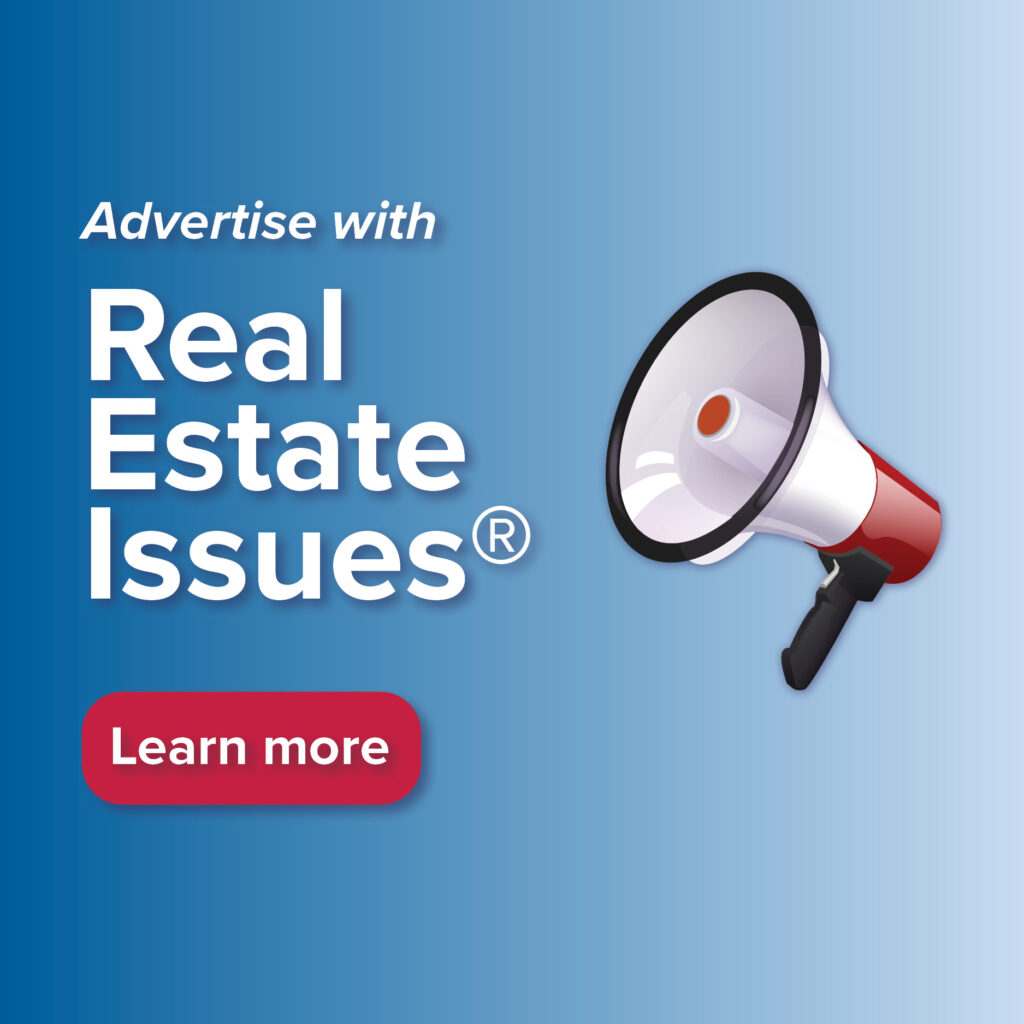Volume 35, Number 2
Summer 2010
By Bowen H. ‘Buzz’ McCoy, CRE

Photo: 3D generator/Shutterstock.com
Recent articles in The Wall Street Journal reported a renewed emphasis on ethics on the part of the newly appointed dean at Harvard Business School. The financecaused current recession has raised issues of fraud and corruption in several sectors of society. As a result, in part from well-intentioned advice from legal and public relations counsel, it appears several prominent financial institutions seem to have forgotten the distinction between being legal and being ethical.
Several hundred years ago the Renaissance poet Dante Alighieri explained the difference in a famous letter to his sponsor and protector, Con Grande. In it, he described how he thought his great poem “The Divine Comedy” should be read. Dante felt the poem should be read on four levels simultaneously. First there is the literal level, the surface story. Apparently it became the practice for some financial institutions to place their own interests ahead of their clients and in so doing, traded against them. Then there is the allegorical level, the myths and heroes we use to drive our firms’ culture. In the words of “Liars’ Poker,” it is the guy with the “big swinging ______” who did the biggest trades and made the most money. Then there is a deeper moral level of what society expects of us through custom and the law. We ignore the public concept of good and bad behavior at our own peril. Living right up to the line of acceptable and legal behavior is highly dangerous, and none of us is clever enough to NOT slip over the line on occasion. Society is surprisingly adept at detecting the cynicism of utilizing the law for one’s own benefit.
Finally, Dante would say, there is the deepest level of ethics, nourished by humanism, nature, religious practice, and the like. The best firms live beyond the law, in the sense that they are attuned to the deeper values of society. These values are embedded into their culture. A cynic might say that “you get your loving at home,” but the highest levels of performance and the fewest problems occur when employees feel they can live out their deep values in the work place.
In an ethical work environment, employees know what the limits are and they are less likely to play it close to the line. Who we are today defines who we will be tomorrow. As we have seen, without a strong values-based culture and some fixed points, individuals are more likely to fall down the slippery slope of sloppy behavior, leading to embedded bad practices, creating in turn, civil crime and, ultimately, criminal behavior.
The British writer of Christian literature, C. S. Lewis, demonstrated this theory in an address to students at the University of London in 1944:
“And the prophecy I make is this. To nine out of ten of you the choice which could lead to scoundrelism will come, when it does come, in no very dramatic colors. Obviously bad men, obviously threatening or bribing, will almost certainly not appear. Over a drink or a cup of coffee, disguised as a triviality and sandwiched between two jokes, from the lips of a man, or woman, whom you have recently been getting to know rather better and whom you hope to know better still—just at the moment when you are most anxious not to appear crude, or naïf [naïve], or a prig—the hint will come. It will be the hint of something which is not quite in accordance with the technical rules of fair play: something which the public, the ignorant, romantic public, would never understand; something which even the outsiders in your own profession are apt to make a fuss about; but something, says your new friend, which “we”—and at the word “we” you try not to blush for mere pleasure—something “we always do.” And you will be drawn in, if you are drawn in, not by desire for gain or ease, but simply because at that moment, when the cup was so near your lips, you cannot bear to be thrust back again into the cold outer world. It would be so terrible to see the other man’s face—that genial, confidential, delightfully sophisticated face—turn suddenly cold and contemptuous, to know that you had been tried for the Inner Ring and rejected. And then, if you are drawn in, next week it will be something a little further from the rules, and next year something further still, but all in the jolliest, friendliest spirit. It may end in a crash, a scandal and penal servitude: it may end in millions, a peerage and giving the prizes at your old school. but you will be a scoundrel.”
In order to be termed a profession, a business activity must have an underlying ethic which is broadly understood and goes beyond just making as much money as you can. A profession serves client needs and is based upon layers of trust relationships. There is a stakeholder theory of ethics which states that the more broadly, creatively and imaginatively a firm defines its stakeholders—the parties affected by its actions—the greater chance it will serve society ethically. by narrowly defining the affected parties, one is driven to hubris and self-aggrandizement, and ultimately to failure.
Compensation systems should be designed to support character and culture, not “winner take all.” Compensation pools should be based on productivity, but in the determination of individual bonuses, account must be taken of training, recruiting, compliance, character, trust, sustaining the corporate culture, and the like. On the margin, a bad actor who claims he can get a higher payout across the street should be encouraged to “take a hike,” thus reinforcing the message across the board. On a trading floor, turret leaders of groups of three to four should be coaches and transmitters of the values and culture.
Regulation, while it can be mind-numbing and bureaucratic, can also be freeing. It is helpful to know what the limits are. Investment banking and public accounting are two professions where certain firms caused the standards to be lowered for all the firms in the business. It was a case of Gresham’s Law: bad currency driving out the good. Drexel and Enron drove down business standards while cynically “reinventing” the business. The peters and Waterman “tight/loose” theory is applicable. It is important to be rigorous about certain core values and constraints and to provide freedom for innovation and creativity around those cores.
Above all, a professional business is about building trust relationships with clients, fellow employees, the government, shareholders, and the general public, one by one, and sustaining them by your performance over many years. •






